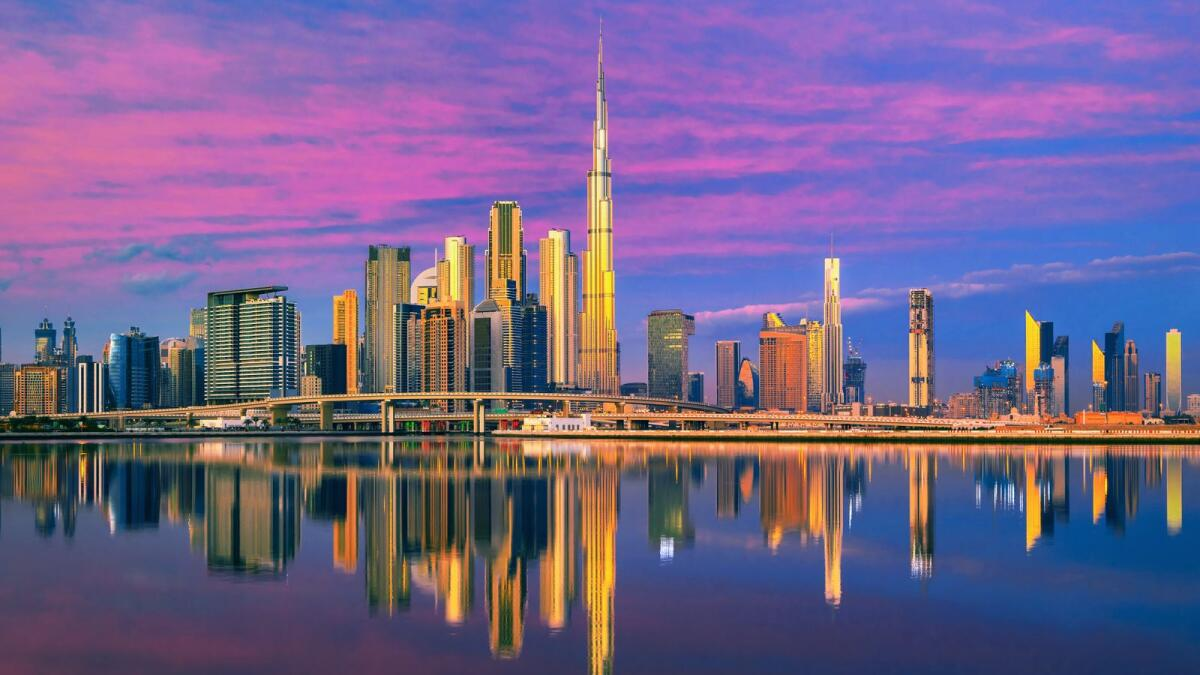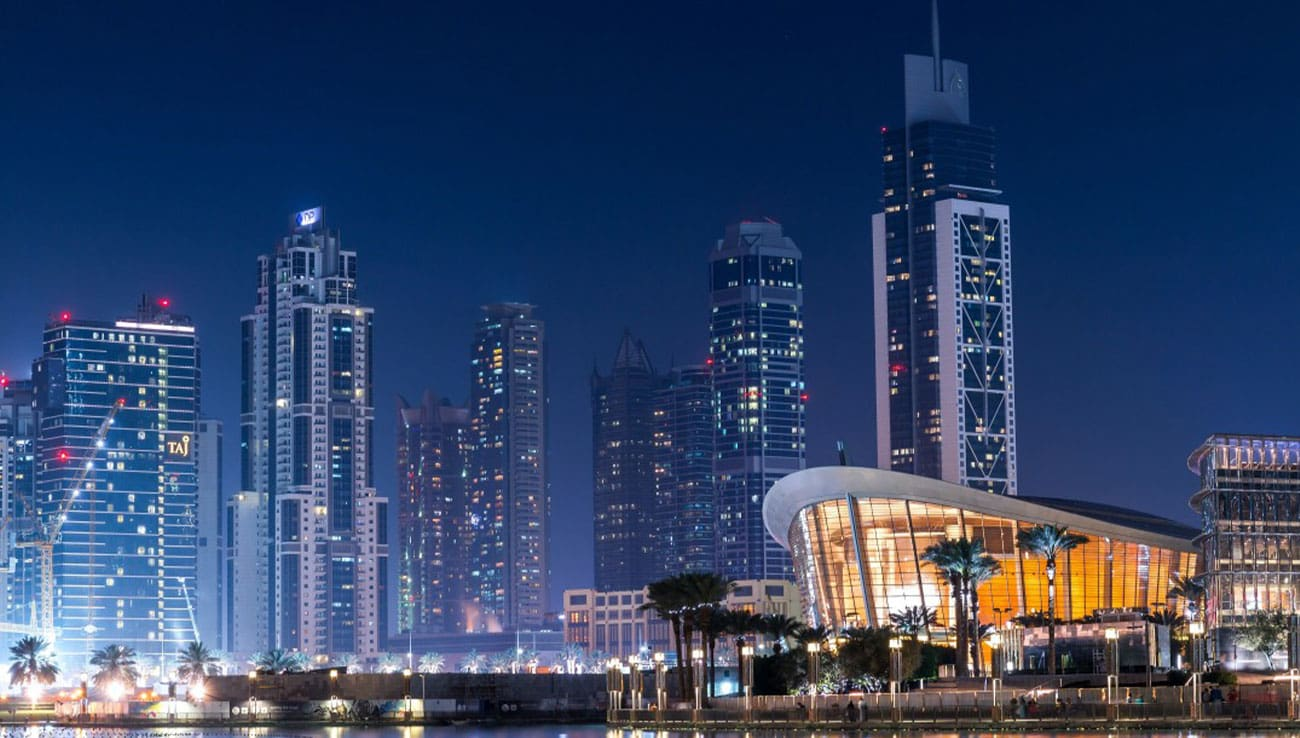Now Reading: How Dubai’s 2025 Tourism Boom Is Reshaping the Future
-
01
How Dubai’s 2025 Tourism Boom Is Reshaping the Future
How Dubai’s 2025 Tourism Boom Is Reshaping the Future
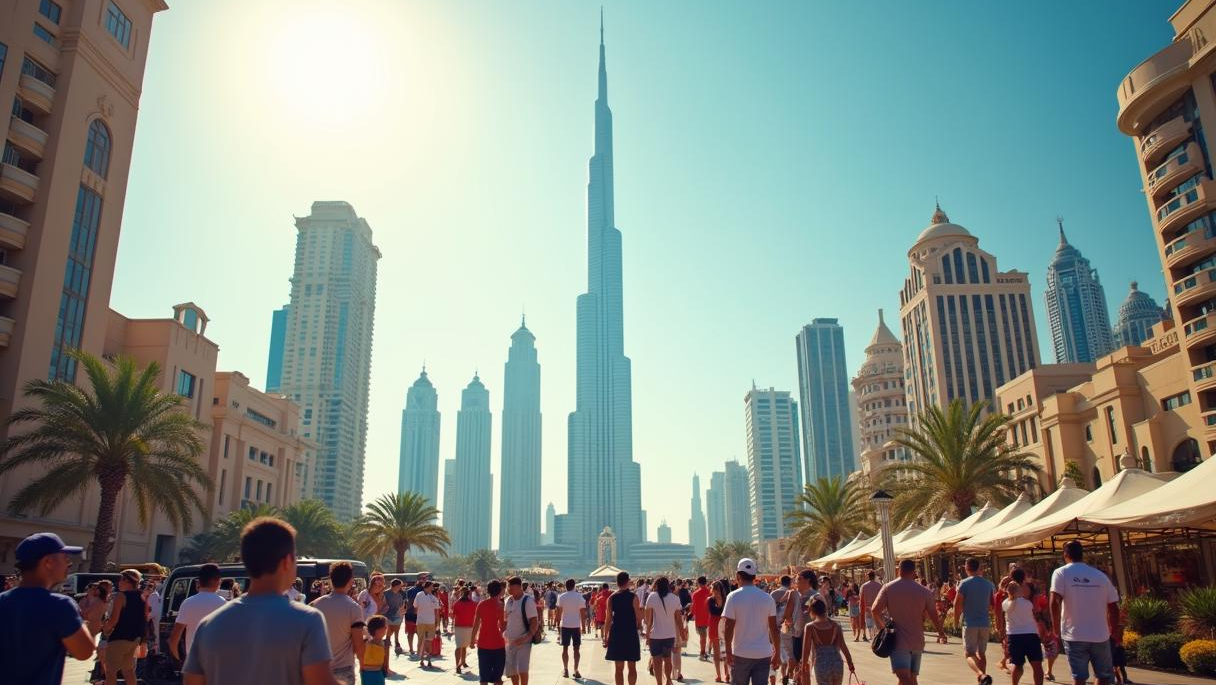
Table of Contents
Dubai has once again proven why it is one of the most visited cities in the world. In 2025, the emirate is not just witnessing record-breaking tourism numbers, but also reshaping its economy, culture, and global reputation. From luxury experiences to sustainable initiatives, Dubai’s tourism boom this year is setting the stage for the city’s future.
Record Numbers in 2025
According to the Department of Economy and Tourism (DET), Dubai welcomed millions of international visitors in the first half of 2025 alone. Hotel occupancy rates remain high, flights are fully booked, and the city continues to attract tourists from every corner of the globe. The surge has been driven by major international events, an expanding airline network, and Dubai’s growing reputation as a safe, modern, and diverse travel hub.
Tourists are not just coming for shopping or beaches anymore—they are exploring Dubai as a complete lifestyle destination. With world-class infrastructure, iconic landmarks, family-friendly attractions, and cultural experiences, the city appeals to a wide audience.
Mega Events Powering Tourism
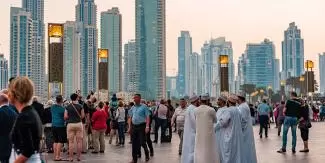
One of the main reasons behind the 2025 boom is Dubai’s strong calendar of international events. From the Dubai Shopping Festival and Food Festival to global sports tournaments and business conferences, the city has turned into a year-round destination.
The Dubai Expo 2020 had already left a lasting legacy, and in 2025, Dubai has built on that momentum. The Expo City district now hosts global exhibitions, sustainability events, and innovation summits, attracting both leisure and business travelers.
A Hub for Luxury and Lifestyle
Dubai has long been known as the land of luxury, and 2025 has taken this reputation to new heights. Ultra-modern resorts, Michelin-starred restaurants, designer shopping avenues, and record-breaking architectural marvels continue to draw high-net-worth tourists.
The city’s luxury hospitality sector has seen massive growth, with more five-star hotels opening in areas like Palm Jumeirah, Downtown Dubai, and Dubai Marina. Tourists from Europe, Asia, and the Middle East are particularly drawn to the seamless blend of luxury and comfort.
Family Tourism on the Rise
Beyond luxury, Dubai is increasingly positioning itself as a family-friendly destination. Attractions like Dubai Parks and Resorts, the Dubai Safari, LEGOLAND, and a growing number of interactive museums make it appealing for families with children. Waterparks, desert safaris, and cultural centers also add to the city’s family tourism portfolio.
This shift has helped Dubai expand its audience beyond business travelers and luxury seekers, making it one of the most versatile global destinations.
Technology and Smart Tourism
Technology has played a big role in shaping Dubai’s tourism in 2025. Artificial intelligence-powered booking systems, smart airport services, and digital city guides have made travel seamless for visitors. Dubai International Airport remains one of the busiest in the world, and its smart immigration and biometric systems have reduced waiting times significantly.
Hotels and attractions now integrate AI and AR (augmented reality) to offer personalized experiences. Virtual guides in multiple languages allow tourists to explore the city with ease, while cashless payment systems make shopping and dining more convenient.
Focus on Sustainability
Sustainability is no longer just a global trend—it is at the heart of Dubai’s tourism strategy in 2025. The city is investing heavily in eco-friendly projects, renewable energy-powered hotels, and sustainable transport options. Desert resorts are now offering eco-lodges, while solar-powered water taxis and electric buses are making transport greener.
Dubai’s commitment to green initiatives is attracting eco-conscious travelers who want luxury combined with responsibility. This focus on sustainable tourism is shaping Dubai’s future as a forward-thinking destination.
The Economic Impact
Tourism has always been a key pillar of Dubai’s economy, but in 2025, it is contributing even more significantly. The boom has led to higher hotel revenues, job creation, and growth in related industries like retail, real estate, and transport.
Dubai’s malls, often seen as global attractions themselves, have reported record sales this year. Restaurants, cafés, and entertainment venues are also experiencing growth, driven by both tourists and residents.
The real estate sector is benefiting as well, with short-term rentals and holiday homes seeing strong demand. Many investors are entering the Dubai property market to take advantage of this surge in tourism-driven rental income.
Challenges and the Road Ahead
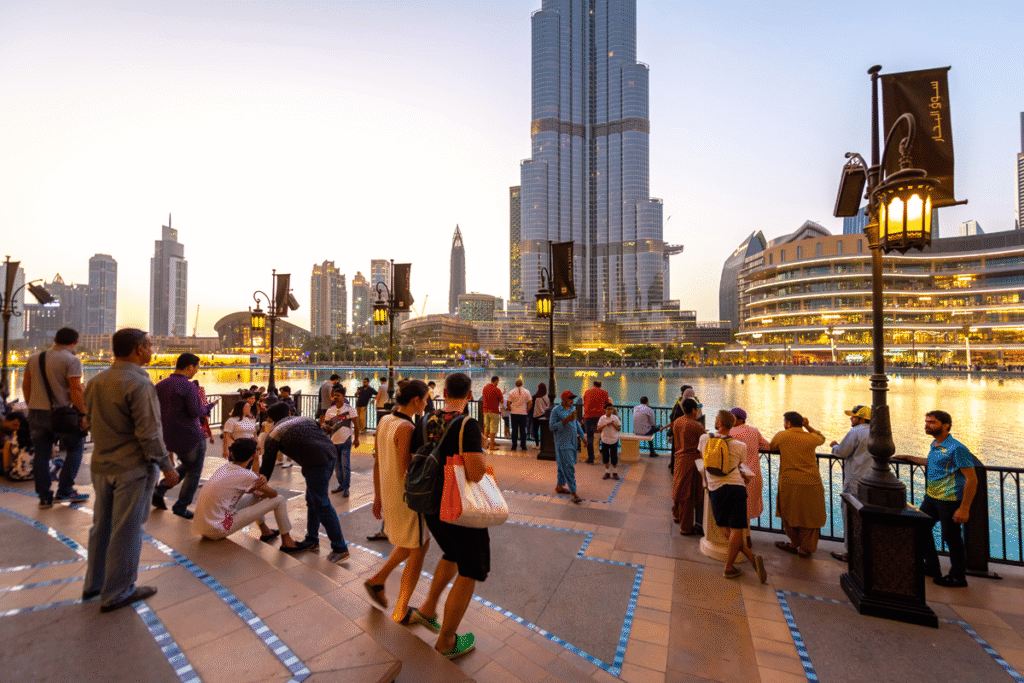
While the boom brings many opportunities, it also comes with challenges. The city must balance its rapid growth with sustainability and ensure that infrastructure keeps pace with demand. Traffic congestion, rising living costs, and environmental concerns are issues that need attention.
However, Dubai’s leadership has consistently shown the ability to plan ahead. The government continues to invest in smart infrastructure, public transport, and sustainability programs to secure long-term growth.
Looking Beyond 2025
Dubai’s tourism boom in 2025 is not just about numbers—it is about vision. The emirate is laying the foundation for the future, aiming to remain among the top three global travel destinations. By combining innovation, luxury, culture, and sustainability, Dubai is creating a tourism model that many cities around the world may look to replicate.
As Dubai looks toward the next decade, it is clear that tourism will remain central to its growth story. The emirate’s ability to reinvent itself, adapt to global trends, and exceed visitor expectations makes it one of the most dynamic destinations in the world.
Final Word
Dubai’s tourism boom in 2025 is more than just a rise in visitor numbers it is shaping the city’s identity, economy, and future. From luxury seekers to eco-travelers, from families to business leaders, Dubai has something for everyone. The emirate’s journey this year shows how tourism, when driven by vision and innovation, can transform a city into a global powerhouse for years to come.
Read More:- Shobha Realty Launches Its Most Luxurious Project Yet—Full Details Inside 2025



